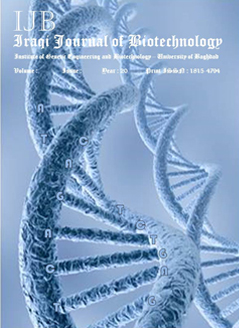Circulating Human IL-10 - Secreting Regulatory B Cells in Acute and Chronic Ischemic Heart Disease
Abstract
Ischemic heart disease (IHD) is a leading cause of death worldwide. Suppression of immune system after the resolution of infection or inflammation is an important process that limits immune-mediated pathogenesis, therefore, in this study for the first time in Iraq we highlights the importance of IL-10 secreting regulatory B cells (B10/Br1/BREG) in ischemic heart disease immunoregulation. Peripheral blood lymphocytes were isolated from 83 patients with ischemic heart disease, then IL-10 secreting regulatory B cells were detected by using double staining immunocytochemistry (DS-ICC) with both CD19 and IL-10 monoclonal antibodies. Results showed the decreased number and mean percentage of BREG in the peripheral blood of both acute and chronic ischemic heart disease in general when compared with controls, but these cells recorded higher number and mean percentage in acute than chronic ischemic heart disease, and there was a significant difference in the mean percentage of BREG cells among the patient's groups. In conclusion, IL-10 secreting regulatory B cells play an important but limited role in ischemic heart disease immunoregulation due to their lower numbers, and further studies must be done for future directions correlated with how to manipulate these cells in immunoregulation with more advanced pathways.


